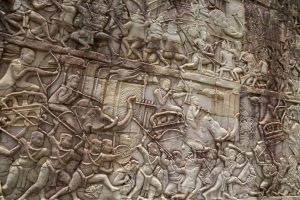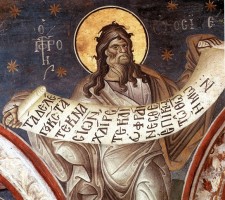The simple and short answer to the title question is: We study the Old Testament because we cannot understand the New Testament without it. In fact, we will make a lot of mistakes in understanding the New Testament and particularly the central figure of Jesus without understanding the culture, religion, and milieu of the people of Israel through his time and beyond.
Without co-opting what Judaism became over the centuries since the end of the Temple and the period of formative Judaism through the Rabbinic era, we Christians continue to use the Old Testament in several ways:
• As source for the Commandments of God that lead to a holy life;
• As source for the concept of Messiah that developed over centuries, a concept not shared by other cultures;
• As source for the concept of covenant that underlies all we say and believe about the person and work of Christ;
• As source for the concept of community that underlies the early understanding of and liturgical format for the church;
• As source for much of the shape of worship and especially prayer, as exemplified by the Psalms and Canticles.
The understanding of God in the Old Testament and the Judaism(s) of the time of Jesus is central to our contemporary understanding of God, particularly in terms of the personalism involved. That is to say, God is not an abstract and impersonal cosmic force controlling the universe (or a part of it, in the case of polytheism), an It, to use Martin Buber’s terms, but a Thou (a person with whom one can communicate; hence, the basic meaning of prayer). One cannot get to God with a human face in the New Testament without coming through God as a personal relationship in the Old Testament. This was a crucial aspect of the early arguments about monotheism in early Christendom. The logic here drew the conclusion that if God were personal then it would only be natural that God would ultimately enter into the mainstream of humanity in order to identify with and raise up his fallen creation, beginning with people.
Following upon this, our relationship with God is characterized by love and repentance: love for God is central, with love for our fellow man and the creation seen as an extension of that initial love. Repentance is return to God, as the word in Hebrew suggests; the Greek focuses on our change of mind needed to continue to enter into relationship with God. Many of the issues of the Old Testament remain, with adjustments, the same for us: how do we enter into community with God and others? What does it mean for us to return to God via the covenant we have through Christ? How do our rituals enable us to respond to God today, as did (and do) those of the Old Testament? How are our hopes and dreams portrayed through the words of the Psalms? How are we today enabled to spend “the remaining time of our lives in peace and repentance,” as the litany asks?
The Old and New Testaments are not the same in content or format, but they are related. In Judaism God took up personal relationship through the Word; in Christianity that is also true, but the Word took on flesh in Jesus of Nazareth (incarnation). Seeing him as the Word of God, as did John the theologian, we stand in line with our ancestors and understand how and why to study the Old Testament as Christians.




















